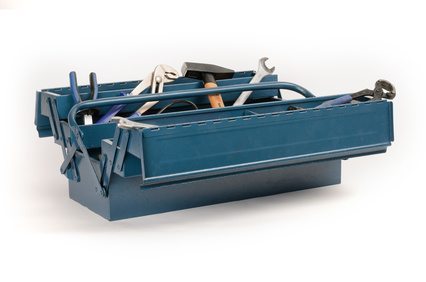
© Thomas Söllner – fotolia.com
The Düsseldorf Higher Regional Court has recently rejected an application for a temporary injunction (OLG Düsseldorf, Urteil v. 29.3.2018, Az. I-20 U 114/17).
The decision primarily deals with urgency, which can also cease to apply retrospectively if the creditor is aware of breaches of the interim injunction but does not take action against them.
Asserting claims for injunctive relief is not easy
The assertion of claims for injunctive relief, as described in the Trademark law, Competition law, Copyright and Personal rights are mainly the subject of disputes is difficult.
In the following article from December 2017
we pointed out that the implementation of preliminary injunction proceedings involves many potential pitfalls and therefore requires a great deal of experience and legal expertise. In the case described there, the Düsseldorf Regional Court had rejected an application for a preliminary injunction consisting of three parts for three different reasons in each case. The applications are indeterminate, unfounded and not urgent.
The preliminary injunction procedure is complicated
An elementary prerequisite for a temporary injunction, which also plays a decisive role in the present case, is the Materiality of the matter, the range of which is between 1 and 3 months depending on the court seized. There is a rebuttable presumption in favor of the creditor. However, if the debtor can show that the creditor knew or should have known of the infringement earlier, the application for an injunction must be rejected regardless of the substantive legal situation.
In this case, however, it was not a question of the time at which the infringement became known, but rather the question of whether urgency can subsequently cease to apply due to certain circumstances. One after the other.
Background to the current case
The same whirlpool and sauna dealer who had attracted attention with a veritable wave of warnings against various competitors and who had already unsuccessfully attempted to assert competition law claims against our client in the above-mentioned proceedings, once again had to contend with procedural difficulties in a further case.
He had taken offense at the fact that a competitor was advertising its products as “Made in Germany”. The allegation: essential components of the goods were supplied parts that were manufactured abroad. After the Regional Court had issued the requested ban, the Higher Regional Court lifted the temporary injunction and rejected the corresponding application.
Not urgent in the absence of an application for an order
The problem with the application was that the defendant was able to prove that the applicant had not filed an application for an order after the injunction had been issued, even though it had been aware of the alleged infringements for months. The applicant had thus subsequently shown that her request was ultimately not urgent.
In its decision, the Senate points out that it is generally recognized that it is detrimental to urgency if the applicant initially obtains an interim injunction but then does not make use of it despite continued infringements by the defendant. If the creditor considers his interests to be so important and so endangered that it is unreasonable for him to accept the delay associated with the initiation of main proceedings, he must do everything in his power to dissuade the debtor from acting in breach of his title and interests if the debtor does not comply with the interim injunction issued against him and enforced against him in order to safeguard these interests. The instrument provided by law for this case is the application for an administrative fine, even if the administrative remedy proceedings do not immediately lead to the desired success of the legally binding imposition of an administrative fine in view of the legal hearing to be granted to the debtor there and the possibility of appeal open to the debtor (OLG Düsseldorf, Urteil v. 29.3.2018, Az. I-20 U 114/17).
Conclusion
Once again, this is a very instructive decision, which is also pleasing because it puts a stop to the “warning mania” that can be observed time and again. The means of warning letters and injunction proceedings are often used to “take revenge” on disfavored competitors or to burden them with costs and additional expenses and not, as actually intended, to restore fairness in competition.
As the present case shows, this extraneous motivation can be countered not only with the objection of abuse of rights, but also with the objection of hesitant behavior. This is particularly the case if the competitor reveals its true motives by limiting its efforts after receiving the preliminary injunction to the assertion of warning and procedural costs, although the (pretended) reason for the action, namely the (alleged) infringement, continues to exist.
Disclosure: Our law firm represented the defendant.